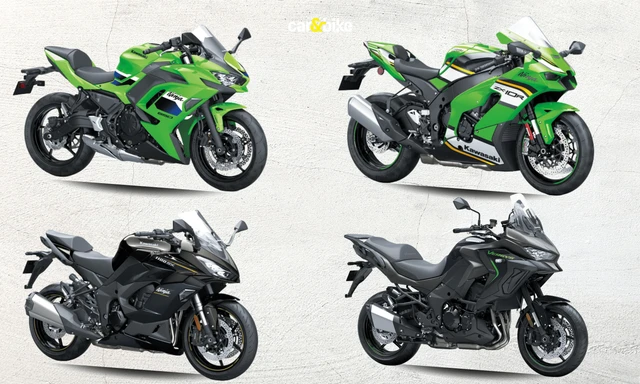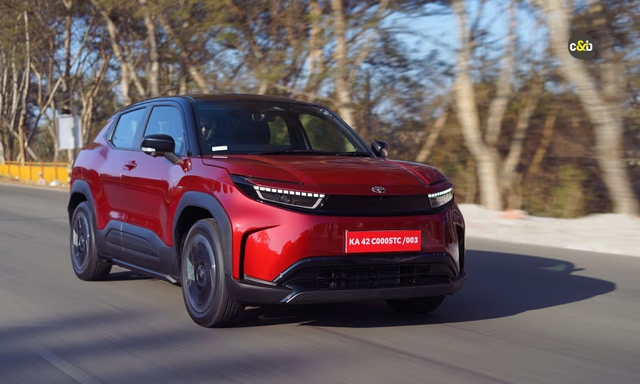Russian Oil Cap Doubts Spur Insurer Fears Of Ships Left At Sea

Oil-laden tankers risk being left languishing at sea if insurers do not urgently get clarity on an unfinished G7 and European Union plan to cap the price of Russian crude, two senior industry executives told Reuters.
The Group of Seven (G7), which includes the United States, Britain, Germany and France, agreed in September to enforce a low price on sales of Russian oil.
U.S. officials said the move, which is due to start on Dec. 5, was aimed at allowing it to continue to flow, heading off a potential price shock after total EU bans were ratified in June.
And with just three weeks to go, time is running out to fully convince the shipping services industry it will work.
Concerns are centred around a scenario in which insurers discover that oil in transit at sea, which was believed to have been sold below the price cap, was in fact sold above it.
This would trigger the withdrawal of insurance cover as well as a refusal by buyers to accept delivery, leading to financial and logistical headaches and risking environmental dangers.
"If the time is too short, I think everyone will have a Plan B to de-risk, terminate, stay away, not maybe conclude any new contracts until there is some clarity," said George Voloshin, Global Anti-Financial Crime Expert at ACAMS, the Association of Certified Anti-Money Laundering Specialists which consults with oil industry bankers, traders and insurers.
If insurance was withdrawn mid-voyage, buyers and traders would have to figure out what to do with a stranded cargo potentially exposed to sanctions, complicating a strategy to deprive Russia of funds over its invasion of Ukraine.
"It will probably be quite messy," Voloshin said.
A European Commission official said the EU is aware that much more additional detail will be needed as time runs short for businesses to learn about their obligations, but that the issue must be dealt with at the G7 level.
The official spoke to Reuters on condition of anonymity because they are not authorized to speak about the matter.
U.S. State Department Ambassador James O'Brien, who heads the coordination of sanctions against Russia, said G7 countries will be ready with all the operational details and that technical talks were underway on pricing and governance.
'SANCTION ISLANDS'
But if information gaps remain on the cap, it is possible oil-filled tankers could be left without insurance and marooned near ports, posing a major safety issue for nearby countries in the event of a spill, as well as any cleanup costs.
"In that situation, the vessel will go off risk and financial and technical services will be withdrawn and no one is going to take delivery of the cargo," Mike Salthouse, head of claims at British-based global ship insurer North, told Reuters.
"This would be a bad development as no one will want uninsured ships sitting off coasts," he added.
Salthouse said an owner of a ship which was potentially not earning anything for many months "will price that into any decision they make about carrying cargo in the future", adding that this was likely to act as a disincentive.
"If that happens too often, it will run contrary to what the EU/G7 Coalition is trying to achieve."
Although the EU ratified the price cap last month, insurers point to still unpublished legal details which must align with incomplete but more detailed U.S. Treasury guidance, especially over guarantees that insurers will not face surprise obstacles in the middle of a ship's voyage.
"We need regulation in the G7 community which is similar, that is, the U.S. - where we have interim guidelines in the meantime - the U.K. and the EU," said Lars Lange, secretary general of the International Union of Marine Insurance (IUMI).
"We fear that if we get different regulations from these three 'sanction islands' we will struggle to comply with all at the same time," Lange said, adding that any vessels which are spurned by ports pose serious consequences.
The IUMI and the separate International Group insurance association have let G7 and EU governments know that their guidelines must include guarantees that the proof that a Russian cargo was sold in line with the cap is all that an owner is required to check before agreeing to load and carry the cargo.
Latest News
 car&bike Team | Feb 14, 2026Kawasaki Ninja, Versys Models Available With Discounts Of Up To Rs 2.50 LakhThe highest discount is being offered on the Ninja ZX-10R, followed by the Ninja 1100 SX and ZX-6R models.2 mins read
car&bike Team | Feb 14, 2026Kawasaki Ninja, Versys Models Available With Discounts Of Up To Rs 2.50 LakhThe highest discount is being offered on the Ninja ZX-10R, followed by the Ninja 1100 SX and ZX-6R models.2 mins read car&bike Team | Feb 14, 2026Vespa Officina 8 Launched At Rs 1.34 LakhThe Officina 8 takes inspiration from Piaggio’s historic experimental workshop in Pontedera, Italy.1 min read
car&bike Team | Feb 14, 2026Vespa Officina 8 Launched At Rs 1.34 LakhThe Officina 8 takes inspiration from Piaggio’s historic experimental workshop in Pontedera, Italy.1 min read Bilal Firfiray | Feb 12, 2026MG Majestor vs MG Gloster: What’s New, What’s Different?MG Majestor replaces the Gloster as MG’s new flagship SUV for 2026. Here’s a detailed comparison between the two.4 mins read
Bilal Firfiray | Feb 12, 2026MG Majestor vs MG Gloster: What’s New, What’s Different?MG Majestor replaces the Gloster as MG’s new flagship SUV for 2026. Here’s a detailed comparison between the two.4 mins read car&bike Team | Feb 12, 20262026 MG Majestor: Variants, Features, Specifications ExplainedThe Majestor will be offered in two key trim levels including Sharp and Savvy and in both two-wheel and four-wheel drive variants.2 mins read
car&bike Team | Feb 12, 20262026 MG Majestor: Variants, Features, Specifications ExplainedThe Majestor will be offered in two key trim levels including Sharp and Savvy and in both two-wheel and four-wheel drive variants.2 mins read car&bike Team | Feb 12, 20262026 MG Majestor SUV: In PicturesAlong with the new positioning, the SUV features a heavily updated design and styling; here’s a detailed look at it in pictures.1 min read
car&bike Team | Feb 12, 20262026 MG Majestor SUV: In PicturesAlong with the new positioning, the SUV features a heavily updated design and styling; here’s a detailed look at it in pictures.1 min read car&bike Team | Feb 12, 2026Tata Punch EV Facelift Spotted Ahead Of February 20 LaunchThe Punch EV facelift appears to be identical to the ICE counterpart.4 mins read
car&bike Team | Feb 12, 2026Tata Punch EV Facelift Spotted Ahead Of February 20 LaunchThe Punch EV facelift appears to be identical to the ICE counterpart.4 mins read
 Bilal Firfiray | Feb 12, 2026BMW X3 30 xDrive M Sport Review: The Driver’s SUV ReturnsRange-toppingX3 30 xDrive M Sport brings back the fun with 255bhp and genuine enthusiast appeal. Does this performance-focused SUV stand out?5 mins read
Bilal Firfiray | Feb 12, 2026BMW X3 30 xDrive M Sport Review: The Driver’s SUV ReturnsRange-toppingX3 30 xDrive M Sport brings back the fun with 255bhp and genuine enthusiast appeal. Does this performance-focused SUV stand out?5 mins read Bilal Firfiray | Feb 11, 2026Mercedes-AMG CLE 53 Coupe Review: The Goldilocks AMG?The Mercedes-AMG CLE 53 Coupe is a concoction of hooliganistic performance and everyday usability. Here’s why this Rs 1.5 crore two-door AMG might be the perfect modern sports coupe for India.6 mins read
Bilal Firfiray | Feb 11, 2026Mercedes-AMG CLE 53 Coupe Review: The Goldilocks AMG?The Mercedes-AMG CLE 53 Coupe is a concoction of hooliganistic performance and everyday usability. Here’s why this Rs 1.5 crore two-door AMG might be the perfect modern sports coupe for India.6 mins read Girish Karkera | Feb 11, 2026Toyota Ebella EV Review: Compact And Fun-To-Drive With The Promise Of Stress-Free AftersalesNo hiding the fact that it is a clone of the Maruti Suzuki eVitara, but the first all-electric Toyota in India is reasonably well-rounded8 mins read
Girish Karkera | Feb 11, 2026Toyota Ebella EV Review: Compact And Fun-To-Drive With The Promise Of Stress-Free AftersalesNo hiding the fact that it is a clone of the Maruti Suzuki eVitara, but the first all-electric Toyota in India is reasonably well-rounded8 mins read Bilal Firfiray | Feb 10, 2026Tata Punch EV Long Term Review: Small EV With A Big-Hearted PersonalityWith the new Punch EV Facelift just around the corner, we decided to take a look at what it excels at and what could be improved.7 mins read
Bilal Firfiray | Feb 10, 2026Tata Punch EV Long Term Review: Small EV With A Big-Hearted PersonalityWith the new Punch EV Facelift just around the corner, we decided to take a look at what it excels at and what could be improved.7 mins read Bilal Firfiray | Feb 4, 2026Volkswagen Tayron R-Line Review: Sensible Flagship For IndiaVolkswagen has introduced a made-in-India flagship SUV that offers space, comfort, performance, and German driving finesse in a practical three-row package. But is the Tayron R-Line good enough?6 mins read
Bilal Firfiray | Feb 4, 2026Volkswagen Tayron R-Line Review: Sensible Flagship For IndiaVolkswagen has introduced a made-in-India flagship SUV that offers space, comfort, performance, and German driving finesse in a practical three-row package. But is the Tayron R-Line good enough?6 mins read



























































































































